Heatwaves, wildfires and drought are part of the new norm here in northern Greece. On the slopes of the evergreen Mount Meliton, on the western side of the Sithonia peninsula, I meet Dr Haroula Spinthiropoulou, chief agronomist at Domaine Porto Carras, the main landowner in the PDO Slopes of Meliton and the more coastal PGI Sithonia.
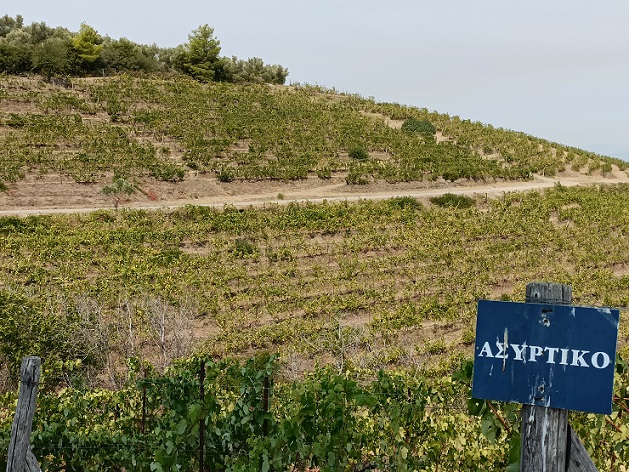
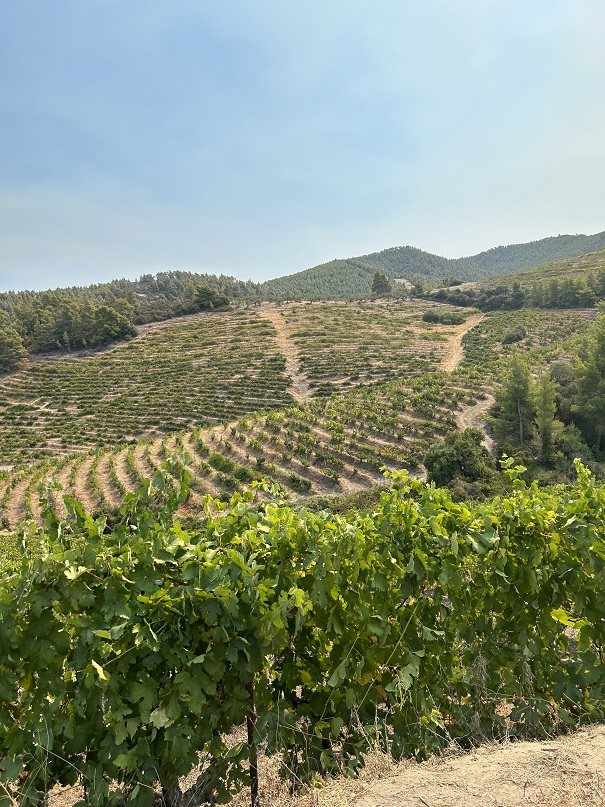
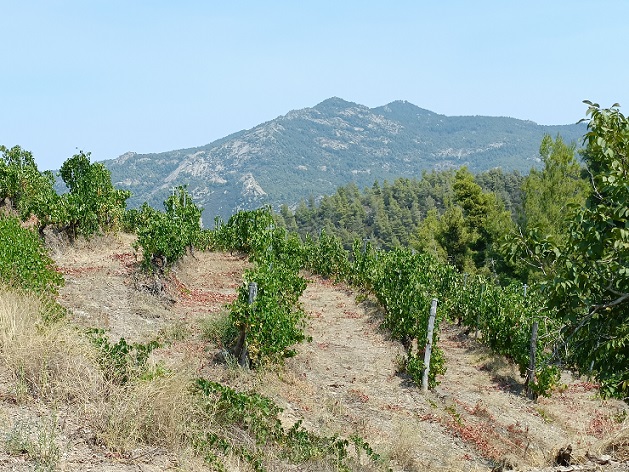
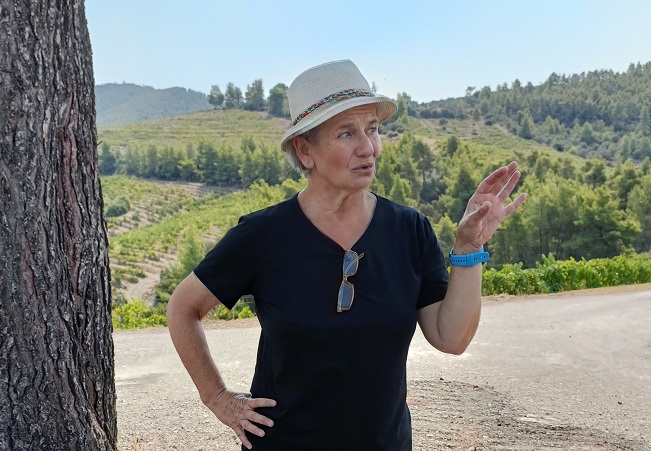
As we walk through the dry-farmed vineyard, first planted in 1967, she tells me about some of the measures they are taking here to combat the higher temperatures. They have stopped cultivating the soil to prevent erosion and the loss of organic matter. They are building up the organic matter by 0.2% per year with the goal of having 2.5% in five years. They are experimenting with bush vines for Greece’s flagship white grape, Assyrtiko, believing the smaller canopy will be more beneficial in the face of increasing temperatures.
Some of the increase in temperature is ameliorated by the altitude. The vines in the Slopes of Meliton grow at between 100 and 350m above sea level. We’re at 127m asl. The vines are planted across the slope to protect the soil from erosion. On the hilltop are olive trees. Pine trees surround the vineyards, trapping the humidity in the evening.
Some of the increase in temperature is also ameliorated by the sea breezes from the nearby Toronaios Bay. Sithonia is one of three peninsulas surging into the Aegean Sea from Halkidiki, which itself is located on a larger peninsula within Greece. The Kassandra peninsula lies to the west of Sithonia and the famous Mount Athos peninsula to the east.
The climate is classified as Mediterranean, with plenty of sunshine and sufficient winter rainfall.
There are 24 grape varieties in the vineyard. Slopes of Meliton was the first PDO in Greece to allow international grape varieties in its composition. But Haroula says they are shifting the focus to indigenous varieties such as Assyrtiko and Malagousia, which are more drought resistant. The other key white grapes in the Slopes of Meliton are Athiri and Roditis. The main Greek red in these parts is Limnio. International varieties allowed in the PDO include Cabernet Sauvignon, Cabernet Franc and Merlot, which occupy the top heights (300-400m asl). The main white in PGI Sithonia is Malagousia (also written as Malagouzia) while the key red is Syrah.
We taste the grapes. The Sauvignon Blanc is ready for hand-harvesting. The rest will be picked over the coming weeks. They all look healthy. A dusting of kaolin clay shields them from the fierce sun and reduces the leaves’ transpiration rate.
As well as the grapes already mentioned, I can see Viognier, Chardonnay, and Muscat of Alexandria. I’m told they also have Cinsaut.
The mixture of Greek and French grapes hint at the site’s history.
This model organic vineyard was designed in the mid-1960s by professors from the Thessaloniki School of Agronomy and Athens Vine & Wine Institute with input from Bordeaux legend Émile Peynaud. They studied the soils and planted the most suitable varieties in each plot. Émile also saw the potential of Limnio in blends with Cabernet Sauvignon and Cabernet Franc. With the reputation of this blend growing in Greece and abroad, the Slopes of Meliton PDO was born in 1982.
To save this heritage, many of the old vines and plots are being regenerated by “severe pruning”, establishing new branches and trunks.
“We believe the key to our success is to keep the old plants as much as we can,” Haroula points out.
Pulling a rock from the sandy-clay soil, she adds: “We have this kind of soil but we have a very deep root system which helps a lot, and the rocks on the surface protect the soil from the high temperature and they keep the moisture in the soil.”
They are also changing their canopy management to deal with the warmer temperatures. Haroula explains: “During spring we want to have a lot of leaves and then, at the beginning of July, we cut them in order to reduce the transpiration rate.”
Climate change could benefit mainland AssyrtikoAs we taste the Assyrtiko grapes ahead of their harvest, she expands on her view that climate change could benefit Assyrtiko in the Slopes of Meliton PDO. She believes the intense minerally and flinty flavours associated with Assyrtiko from the island of Santorini may have more to do with heat stress than soil conditions.
“With this climate change we will reach the character of Santorini because, in my opinion, when Assyrtiko is stressed it has this character of flint in the wines,” she states. “I don’t investigate it yet, but I have tried some wines from Attica, for instance, where the climate is very dry and with low precipitation like Santorini and I remember a tasting where some producers from Santorini didn’t realise they were tasting a wine from Attica (on the mainland, near Athens) – because the character was the same and they didn’t understand that it was not Santorini. This means, for me at least, that there is a connection between Santorini’s character and stress.”
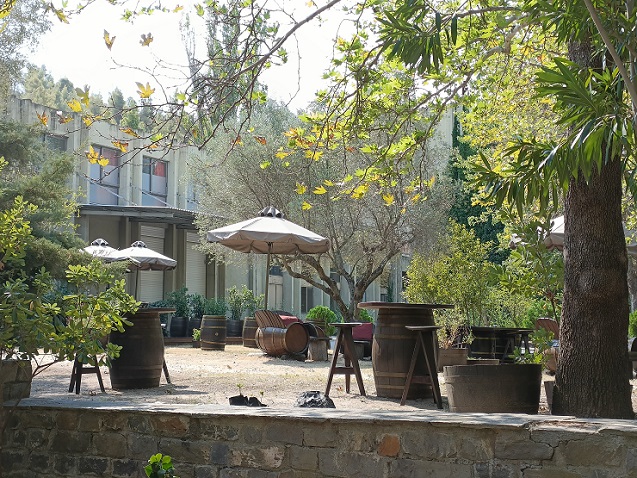
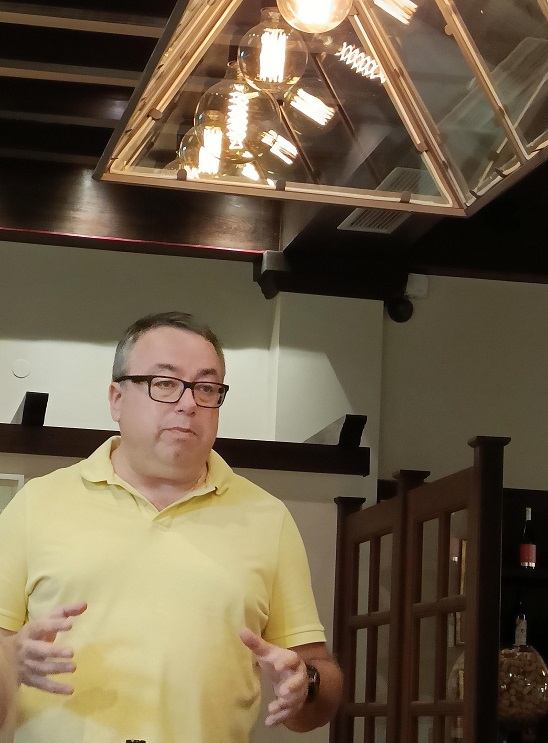
At the foot of the slopes is the Porto Carras winery, built in 1970.
The vineyard, certified organic since 1996, and winery are part of the Porto Carras Grand Resort, which also includes two hotels, a casino, conference hall, marina, spa centre, and golf course.
Belterra Investments took over the business in April 2021 with the stated aim of providing “a complete holiday destination”. That includes thousands of hectares of pristine natural beauty, pine forests and spectacular beaches, and a comprehensive set of leisure facilities. This is where the winery, tasting room and shop fit in.
There are tourists in the wine shop as I make my way to the tasting table. There, I meet the CEO, Sergei Smirnov (above). He says the business has now entered a “new era” but points out the importance of the winemaking facilities: “Everything started from the winery. The hotel, marina, casino – everything was in addition to the winery, so this is the cornerstone.”
He goes on to explain how they are “trying to combine the new era with respect to the history of this place”.
He says they have two advantages – “everything was thought through to the very last details” from the beginning, but they also have 50 years’ experience to draw upon.
“We know what we’re going to be doing the next two or three years and we know our plan until at least 2035,” he says.
“Everything should be sustainable; everything should be green, and everything should be according to the modern standards.”
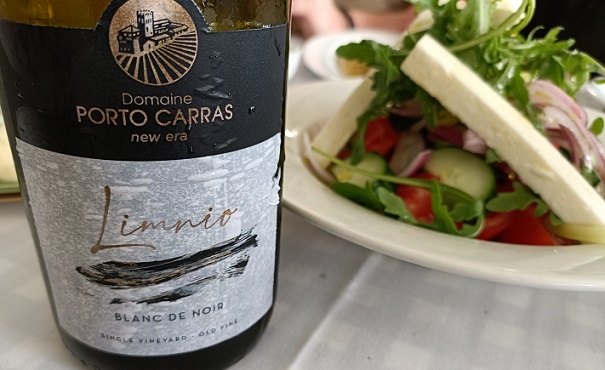
Finally, I get to taste some of the wines in the ‘Melissanthi Experience Hall’. The Malagouzia Classic Dry has a complex nose (pear, melon and citrus fruits with hints of basil and mint). It’s rich, round and silky in the mouth with intense citrus flavours, balanced acidity with a medium finish and bitter bite on the end. The winemaking involves eight hours’ skin contact at 8-10°C; inoculation with yeasts from France; fermentation in steel vats at 16-18°C; and ageing on lees for a few months with some stirring.
The Assyrtiko Mainland is different to Assyrtikos from Santorini, but just as enjoyable. As the grapes ripen more slowly on Mount Meliton, they are more concentrated. The delicate lemon aromas sit on a bed of hay, with hints of oregano. The palate is also lemony with zesty acidity and a touch of minerality on the long finish. The winemaking sounds like that used for the Malagouzia, but with only 5-6 hours of skin contact.
The big surprise is the versatility of the ancient Greek variety Limnio. I taste it as a dry white wine (with 6-8 months’ ageing in French oak barrels); I taste it as one of the five grape varieties in the Rosé 5 (along with Cabernet Sauvignon, Cabernet Franc, Cinsault, and Merlot); I taste it as a spicy Sangiovese-like varietal (with 12 months in French oak); and I taste it in the flagship red blend, Chateau Porto Carras (partnering Cabernet Sauvignon and Cabernet Franc). Like all the reds, this wine sees plenty of new French oak.
Chief winemaker Eyfrossyni Drossou says the techniques introduced by Émile Peynaud are still part of their DNA, but they are trying to have “a more world view” now. She tells me: “We have the French mentality, but we are now trying to vinify worldwide. But Émile Peynaud taught us to be patient, how to vinify a good Cabernet Sauvignon, and how to make a good Syrah.”
The tasting finishes with a beautiful Syrah from 2009. It’s a perfect illustration of the potential high quality of wines coming from the slopes of Mount Meliton, the Sithonia peninsula, and Halkidiki. It’s a region with a special terroir and story.
Driving back to Thessaloniki, the sky is hazy and the sun is orange. The wildfires are still raging in northeast Greece. The news is of vice-regional governor Katerina Zografou announcing a pedestrian and vehicle curfew from 8am to 8pm in wooded areas that are at high risk for wildfires.
WATCH NOW Discover the Essence of Greek Terroir: PDO Slopes of Meliton and PGI Sithonia Wines:


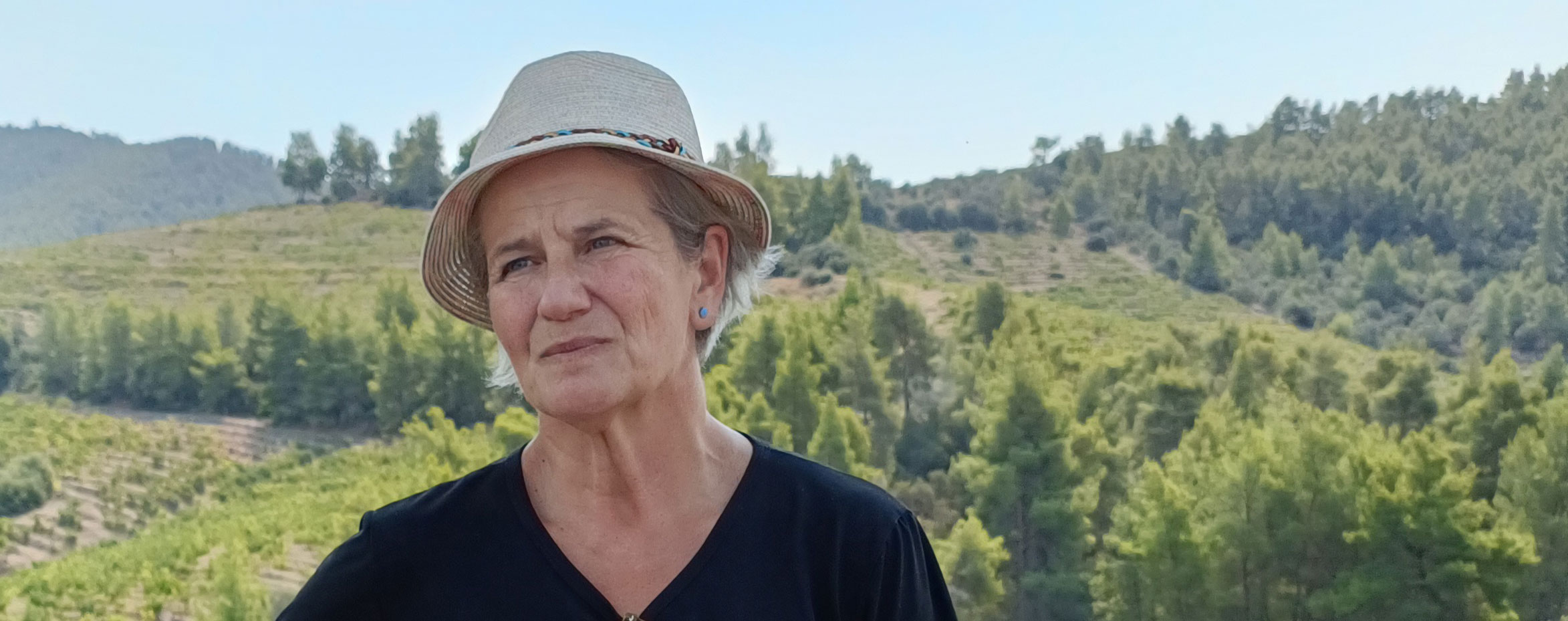










.png)






